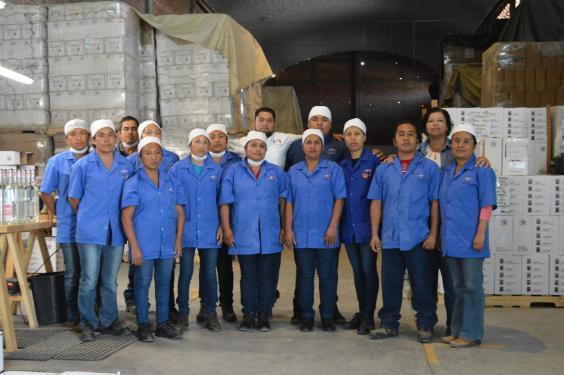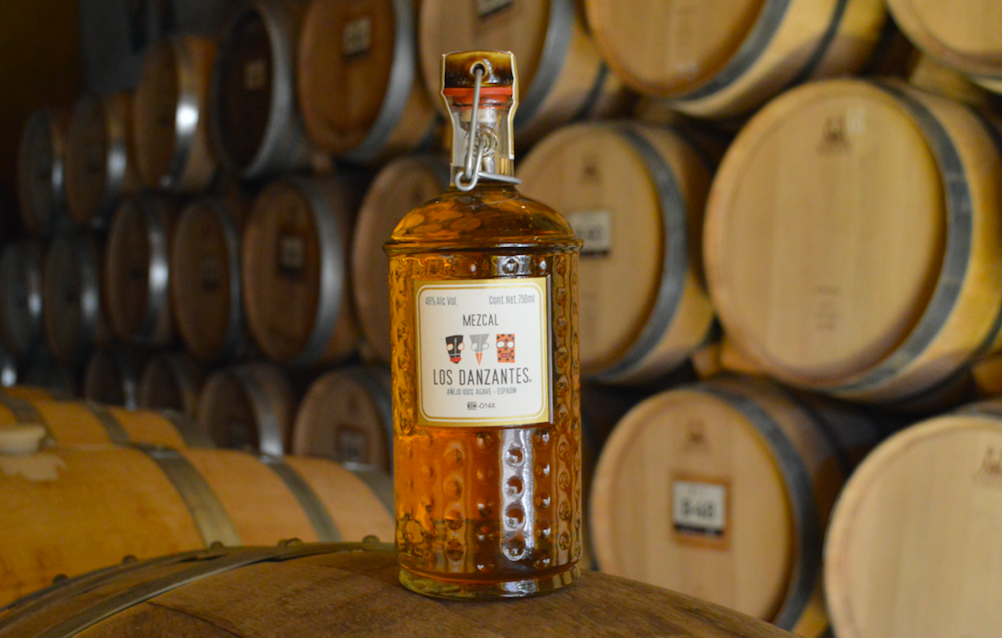The Independent's journalism is supported by our readers. When you purchase through links on our site, we may earn commission.
Preserving Mexican heritage for social good
How the mezcal boom is helping to further social development in the industry's heartland

Oaxaca is a city obsessed by food. Known as the ‘land of seven moles’ (meaning sauces), its home to some of the best eating in all of Mexico, from street food to high end options up there with the best in the world. However its drink rather than food that’s currently making Oaxaca sing on the global stage.
Mezcal, a spirit distilled from agave plants, has stormed onto cocktail menus from London to LA. Beloved by the best bartenders for it’s complexity and unique smokiness, its popularity boom is having a hugely positive knock on effect on Mexico's social development. It's especially being felt in Oaxaca, located 300 miles south of Mexico City, which produces between 80-90% of the country’s certified mezcal.
“We can hardly keep up with demand,” says Victor Perez, International Marketing Manager of Los Danzantes, which owns a mezcal distillery in Santiago Matatlán, the agave growing heartland of Oaxaca.
“We’ve been producing mezcal for over 20 years, but back then we couldn’t give it away. Mezcal had a negative reputation, people thought it was a bad quality drink. Now it’s gone crazy. We recently had to increase our workforce as the market continues to grow, especially in the UK, USA, Italy, and Singapore.”
Today Los Danzantes employs over 50 people, but it’s the nearly all-female bottling plant that’s really turning the tables. In a chilly warehouse down a dusty track in Union Zapata, Oaxaca, a team of local women wearing white coats and face masks run the laboratory, filter the mezcal, prepare and fill bottles, and package orders.
“We tried employing men but we found women were more precise and just better at the job,” says Perez. “Many of the women are their family’s breadwinners as their husbands have left them alone. We have a migration problem in Oaxaca where men move to find work in the North of the country or America, and often they start a new life and have a new family, meaning they stop sending money back.”
The distillery gives the women the opportunity to provide for their family. There’s flexible working so they’re able to juggle childcare or attend special school events, and they’re encouraged to go home for lunch each day, a cornerstone of Mexican life.
Further down the road in mezcal’s answer to Napa Valley lies Los Danzantes’ distillery. It uses only traditional techniques - a horse pulls a one-tonne stone to crush the roasted agave - and employs artisanal workers whose families have worked in Mezcal production for generations. Alcohol, so often blamed for society’s ills, is providing a lifeline for some of Mexico’s most vulnerable.
As well as Los Danzantes directly employing local people they’ve also formed partnerships with existing businesses. Oaxaca has a long tradition of palenques, or remote, family-run mezcal distilleries. Los Danzantes joins forces with these distilleries to ensure their products survive, and to prevent them from being swallowed up by big-brand drinks companies.
The result of these partnerships is a range of mezcal under the umbrella brand Alipus, Mexican slang for meeting for a casual drink. It’s a social development project that exists without contracts so the distilleries are free to leave at any time. The eight that have partnered with Los Danzantes so far are afforded the security of knowing their product will be created and distributed ethically and efficiently, while providing them with a fair and stable income.
The brightly-labelled pink and blue Alipus bottles are growing in popularity, and the only rules the distilleries must stick to are not using chemicals and not mixing batches of mezcal. The range includes one mezcal distilled using an ancient tradition of claypot, a process that would otherwise risk being lost.
Los Dazantes also works with scientific and research partners such as Universidad Autonóma Chapingo to retain the genetic diversity of agave and implement a reforestation programme. There are more than 250 species of the spiky plants, and Mexico is home to 75% of them. Yet the mezcal boom means demand threatens to outstrip supply. The minimum length of time it takes for maguey Espadín plants - the fastest-growing type of agave - to mature is seven years.

Perez says: “There will be shortage of agave soon. Everyone has caught on to its value and there won't be enough to keep up. Wild agave can only be harvested for special productions, after permission has been granted and payment made.
“Most cultivated agave are prevented from flowering in order to obtain the highest sugar profit out of the plant, which means they don't reproduce sexually. That’s why it’s vital that we invest in a programme to protect different species.”
As well as agave conservation, the team at Los Dazantes is committed to finding ways to make use of the by-products of mezcal production. There is a research team currently looking into the potential uses for the pulpy agave waste, including using it as a binding material to build houses.
In the city of Oaxaca, rooftop bars surrounding the church of Santo Domingo are full of people enjoying a mezcal margarita or mezcal negroni. Intimate tasting rooms such as Mezcaloteca, a small bar with dozens of bottles neatly lining the wooden shelves, teach those keen to learn more about the spirit.
At the upmarket Casa Oaxaca El Restaurante, recently recommended by Conde Nast Traveller, guests can choose from more than 60 mezcals and there’s a bespoke mezcal cocktail menu, featuring the signature house ginger infusion. Over in the UK, one of East London bar Super Lyan's most popular cocktails is Smoke & Rust, featuring Del Miguey Vida Mezcal, Sacrificial Scotch, 'molé drambuie' and ancho chile. While Soho haunt Swift serves up it's Daylily Fizz with Montelobos mescal, Plymouth Gin, green Chartreuse and Champagne.
While tequila’s making process is now totally mechanised to meet demand, mezcal's traditional and organic production has become a key part of its appeal. People from Oaxaca are incredibly proud of mezcal, and it has well and truly put them on the international drink industry’s map. That's something we should all drink to.
For more information about Los Danzantes visit www.losdanzantes.com
Getting there
British Airways (0344 493 0787; ba.com) flies non-stop from Heathrow to Mexico City. From there Oaxaca is easy to reach by air or bus.
Staying there
La Betulia Bed & Breakfast, Manuel Cabrera Carrasquedo 102, Oaxaca 68070
www.labetulia.com Double rooms from £57 a night
Join our commenting forum
Join thought-provoking conversations, follow other Independent readers and see their replies
Comments
Bookmark popover
Removed from bookmarks